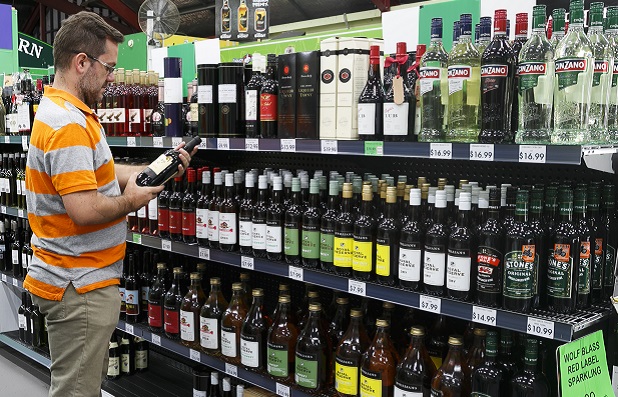By Andy Young
The latest Alcohol Retail Currency report from Roy Morgan Research has revealed supermarket-owned chains now account for 72.3 per cent of the total Australian off-premise alcohol retail market.
The report lists the total value of the liquor retail market at $14.5bn and Norman Morris, Industry Communications Director, Roy Morgan Research, said that while the category is dominated by Woolworths and Dan Murphy’s in particular, there are still lots of things independent retailers can understand about their customers and what they want.
“The latest Roy Morgan Alcohol Retail Currency report reveals that supermarket-owned retailers continue to lead the liquor market, with the Woolworths’-owned Dan Murphy’s in particular maintaining (and building on) its dominant status,” Morris said.
“For independents, hotel bottle shops and less mainstream supermarket chains wishing to remain competitive, it is essential to understand what it is about Dan Murphy’s that attracts such a large (and growing) share of the market and to do what they can to emulate these qualities. For example, Roy Morgan data shows that people who usually shop at Dan Murphy’s place above-average importance on a good range and a well laid-out store where it’s easy to find what they’re looking for. At the same time, they enjoy having a good look around liquor stores, suggesting a willingness to browse rather than just zone in on what they came for and then get out fast.
“Additionally, the smaller retailers need to be aware what their existing customers value in a bottle shop—whether it’s being located close to other shopping spots (ALDI and IGA Liquor customers place great importance on this), low wine prices (noticeably more important for ALDI shoppers) or good specials (a particular priority for First Choice customers)—and ensure that they continue to meet these expectations.
Dan Muprhy’s accounted for nearly 30 per cent of the total dollars spent by Australians on off-premise alcohol in 2016, up from 25.4 per cent in 2015, to 29.9 per cent. The continued rise of the ‘big box’ store is further highlighted as BWS saw its market share decline, while within the Coles group of stores, First Choice grew its market share from 4.5 per cent to five per cent, while Liquorland and Vintage Cellars both recorded declines.
Morris added: “As with Bunnings in the hardware sector, Dan Murphy’s is such a category killer for the alcohol retail market, that it’s unlikely to face any challenges from its smaller rivals in the near future. But this doesn’t mean the smaller players can’t claim more of the booze market for themselves, by emphasising their unique strengths at the same time as they apply what they can from Dan Murphy’s success to their own business model.
“Admittedly, it’s a fine line to tread, but with the insights available within Roy Morgan’s in-depth alcohol customer data, bottle shops stand a better chance of shaping their marketing strategy to appeal to the widest range of liquor shoppers possible and thus adapt to this ever-changing retail sector.”
Overall, supermarket chains such as Dan Murphy’s, First Choice, Liquorland, BWS and ALDI Liquor amassed $10.5 billion of the total amount spent by Aussies on alcohol in a retail environment in 2016. Hotel bottle shops (such as Thirsty Camel) accounted for $1.8 billion, ahead of independents such as Cellarbrations ($1.5 billion), wine clubs ($0.7 billion) and duty free stores ($0.1 billion).
Proportionally speaking, supermarket-owned chains now account for 72.3 per cent of the total market share (up on 69.1 per cent in 2015), with other alcohol retailers trending either downwards or steady. The independents’ share declined markedly (from 12.7 per cent to 10.4 per cent), while duty free stores also suffered (now accounting for just 0.5 per cent of total alcohol retail dollars spent, down from 1.4 per cent). Hotel bottle shops and wine clubs were relatively stable.
Next week the Australian Liquor Stores Association and IRI will release its second State of the Industry Report, looking in detail at the consumer trends with the packaged liquor retail market.

